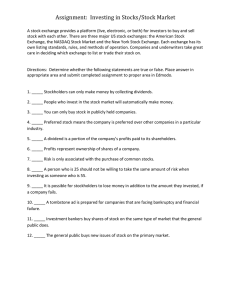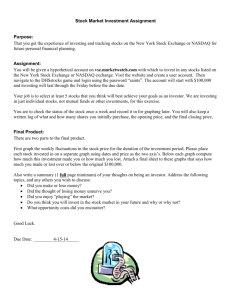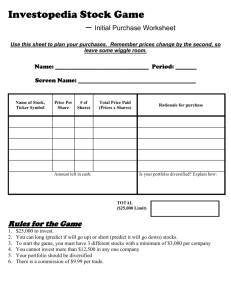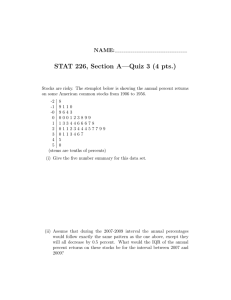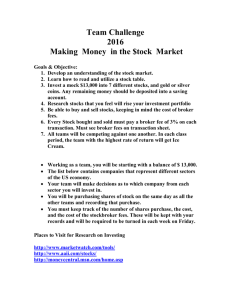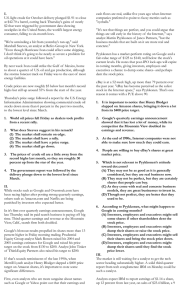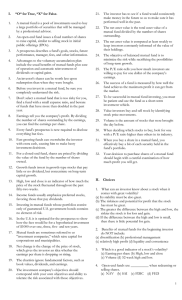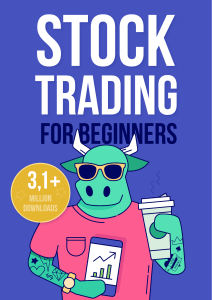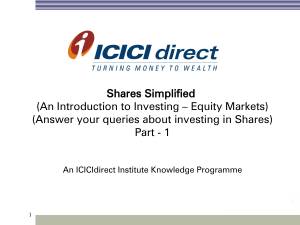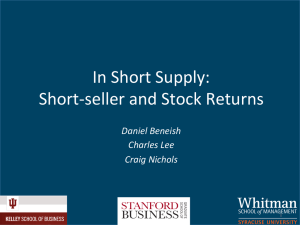Ticker’s Tales The Long Haul
advertisement
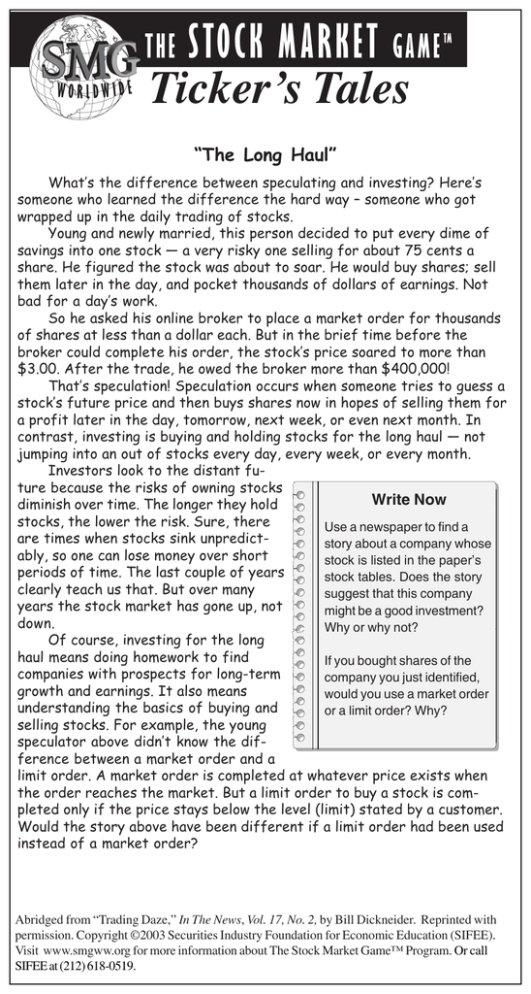
Ticker’s Tales The Long Haul Whats the difference between speculating and investing? Heres someone who learned the difference the hard way someone who got wrapped up in the daily trading of stocks. Young and newly married, this person decided to put every dime of savings into one stock a very risky one selling for about 75 cents a share. He figured the stock was about to soar. He would buy shares; sell them later in the day, and pocket thousands of dollars of earnings. Not bad for a days work. So he asked his online broker to place a market order for thousands of shares at less than a dollar each. But in the brief time before the broker could complete his order, the stocks price soared to more than $3.00. After the trade, he owed the broker more than $400,000! Thats speculation! Speculation occurs when someone tries to guess a stocks future price and then buys shares now in hopes of selling them for a profit later in the day, tomorrow, next week, or even next month. In contrast, investing is buying and holding stocks for the long haul not jumping into an out of stocks every day, every week, or every month. Investors look to the distant future because the risks of owning stocks Write Now diminish over time. The longer they hold stocks, the lower the risk. Sure, there Use a newspaper to find a are times when stocks sink unpredictstory about a company whose ably, so one can lose money over short stock is listed in the paper’s periods of time. The last couple of years stock tables. Does the story clearly teach us that. But over many suggest that this company years the stock market has gone up, not might be a good investment? down. Why or why not? Of course, investing for the long haul means doing homework to find If you bought shares of the companies with prospects for long-term company you just identified, growth and earnings. It also means would you use a market order understanding the basics of buying and or a limit order? Why? selling stocks. For example, the young speculator above didnt know the difference between a market order and a limit order. A market order is completed at whatever price exists when the order reaches the market. But a limit order to buy a stock is completed only if the price stays below the level (limit) stated by a customer. Would the story above have been different if a limit order had been used instead of a market order? Abridged from “Trading Daze,” In The News, Vol. 17, No. 2, by Bill Dickneider. Reprinted with permission. Copyright ©2003 Securities Industry Foundation for Economic Education (SIFEE). Visit www.smgww.org for more information about The Stock Market Game™ Program. Or call SIFEE at (212) 618-0519.
